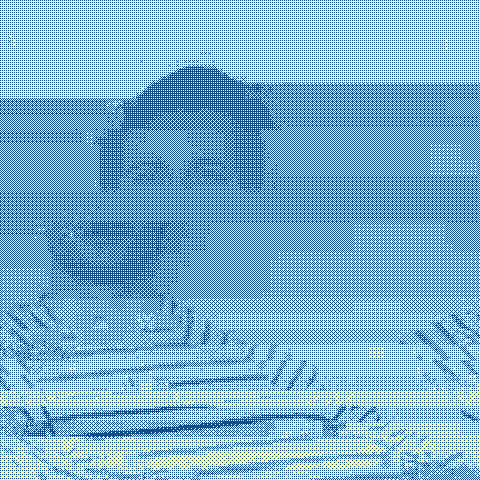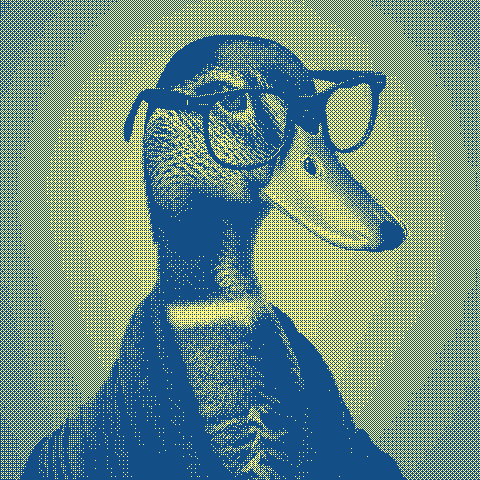
We are an independent research group confronting the gap between what is said to be happening and what is actually happening in digitised societies.

All infrastructures are expressions of power. Digitisation's utopian promises of resilience and equality have not materialised. Today's connected world exacerbates intolerable social, economic, political and ecological issues without accountability. Our digitised societies are brittle and face an uncertain present. Interventions in the name of innovation, ethics or justice have failed.
This is not the future we will accept.
Another world is possible.
New Design Congress is a direct challenge to the digital incumbent.
We combine civic-academic research with criticism informed by our digital security practice, using a unique methodology for ambitious, provocative work that achieves real-world outcomes. From livestreams and software, to policy and papers, our work meets people where they are. We rigorously self-examine for feasibility and accountability. We resist the limitations inherent to speculative design, design justice, ethics consulting, and other professional or techno-solutionism.

Established on 1 Janurary 2020, we work with our members and collaborators — including internet subcultures, at-risk communities, universities, companies, non-profits, artists, environmentalists, and policymakers — to reset the core principles of digital societies: identity, connectivity, ownership, and scale.
Our central theory of change - alternative forking - takes problems of the present, finds underexplored historical and contemporary alternatives, and explores their potential as material challenges to the status quo.
Together, we platform underrepresented critical ideas, develop prototypes and products, find the future in unexpected places, and publish open research to forge applicable and practical alternatives through optimistic and realistic jolts to the wider world.
Core Team

Cade Diehm he/him – with a multi-disciplinary background in information security, interface politics and digital anthropology, Cade and his team study technology's macro-influence on subcultures, economic livelihoods, identity, conflict and ecological relationships. As New Design Congress' founder, Cade leads an ambitious research programme that anticipates how digital dependence creates brittle societies by accelerating risks across economics, infrastructure, identity, and ecology.
Cade’s expertise has informed projects across major institutions and civil society organisations – including the European Parliament, the Pontifical Academy of Sciences, PEN America and others – and his team frequently collaborates with research institutions, civil society, technology firms and environmental groups. Cade serves on the executive board of the Australian and New Zealand Society for Ecological Economics and the observer board of the Digital Credentials for Europe (DC4EU), a European Union Digital Europe Programme pilot.
Prior to founding New Design Congress, Cade was a security researcher at Tactical Tech, a Berlin-based NGO focused on digital rights. He contributed to Signal’s initial launch in the early 2010s, and headed a design-led security practice at SpiderOak, a pioneering zero-knowledge cloud storage company. From 1999 to 2006, Cade represented Australia in international disability swimming, and holds Australian and world records.
Cade lives in Berlin with his partner and two Shiba Inus, Ripley and Kodak.

Benjamin Royer he/him – as Research Director, Benjamin focuses on the political dimension of human-computer interactions, and provides a research-driven backbone to our work. Benjamin combines more that 10 years of insider knowledge on the tech, design and consulting industries, together with a sharp critical framework borrowing from philosophy, anthropology and sociology. His work has taken the form of collaborations with Ink & Switch, PEN America, Mozilla, Webrecorder, Protocol Labs, WYNG Foundation and Signal.
Benjamin is the author of The Imperial Sensorium, a postcolonial study of the cybernetic political economy. He is the co-author of Memory in Uncertainty, a landmark report on the discipline of web archiving which has been featured at the International Internet Preservation Consortium (2023) and RESAW (2023) academic conferences on digital preservation, and co-author of The Digital Identity Event Horizon, a groundbreaking threat analysis of current and emerging digital identity systems.
Benjamin has also translated Adam Greenfield's book Radical Technologies, The Design of Everyday Life in French for Presence(s) Editions.

Rocío Armillas Tiseyra she/her – as New Design Congress' strategic development operative, Rocío is a bureaucratic hacker who navigates the maze of organisational workspaces - especially in conservative policy sectors. Her experience is formidable and includes the United Nations, EIT Climate-KIC, and most recently Bauhaus Earth, where she co-edited the book Reconstructing the Future: cities as carbon sinks (2023). Her career covers a diverse constellation of issues: gender equality, urban planning, digital innovation, and fundraising, and she draws each of these to turn perspective into strategy that is adept at seeing the forest for the trees.
Rocío holds a BSc. in Social Anthropology and an MSc. in Development Studies, both from the London School of Economics and Political Science (LSE).

Rose Regina Lawrence she/her – an experienced digital security practitioner and policy analyst who advises New Design Congress on information security research and best practices, particularly when they collide with policy or legislative contexts.
Drawing on her then-decade of experience with community organising and alternative technology, she developed and ran the Jail Support coordination hotline for Occupy Wall Street. Since 2011, she has focused on issues of surveillance and holistic digital security for journalists, lawyers, human rights defenders, and high risk communities. Her experience includes supporting both independent human rights advocates and organisations, such as Mozilla, Software Freedom Law Center, Organization for Security and Cooperation in Europe, and Tactical Tech.

Louis Center he/him – operating from Tokyo, Louis is the head of New Design Congress' Japan office and a decentralisation/digital subculture researcher. For over a decade, he has combined art, music, broadcasting and software in novel, grassroots ways.
At New Design Congress, he builds internal research tools and documents online subcultures.
Acknowledgements
| Name | Role |
|---|---|
| Elys Day | Systems Researcher (2020-2024) |
| moss heim | Authoring Tools (2023-2024) |
| Brent Bailey | Web Development (2023) |
| Rae McKelvey | Technology Advisor (2022) |
| Philliph Drummond | Web Development (2022) |
| Ngọc Triệu | Print Design (2021) |
| Wei Huang | Type Design (Pantasia) (2020-2022) |
| Edward Anthony | Research Editor (2020-2021) |
| Claire Peters | Web Development (2020) |
| Ignatius Gilfedder | Brand Design (2019) |
Advisory Council
Due to unforeseen issues, we are pausing the assembly of our Advisory Council and will update this section soon.